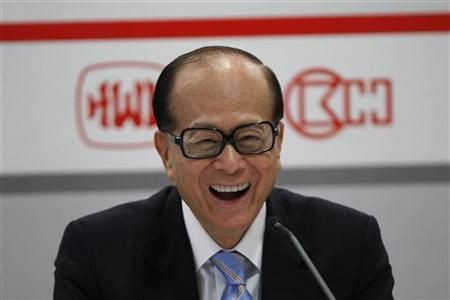China's Hidden Wealth Estimated At $2.34 Trillion

Both Forbes and the Chinese publication Hurun released their 2013 lists of the world’s wealthiest this week. To no one's surprise, Chinese were well represented on both lists. The two lists had some conflicting details over exactly how many billionaires China had, a number that Hurun estimated to be higher than Forbes.
“For every billionaire that Hurun Report has found, I estimate we have missed at least two, meaning that today there are probably 4,000 billionaires in the world," instead of the estimated 1,453, said Rupert Hoogewerf, chairman and chief reporter of the Chinese publication.
And now it seems that a lot of those mysterious money-makers could be in China. According to research by economics scholar Wang Xiaolu, China’s citizens do not report an estimated $2.3 trillion of what they earn each year. This “gray income” represents nearly 20 percent of the nation’s GDP.
As China’s government convenes at the annual National People's Congress -- which will conclude with the formal transition of leadership from Hu Jintao to Xi Jinping — to tackle the widening wealth gap, Wang’s report suggests the problem may be even bigger than it initially seemed.
The wealth is said to come from a variety of unsavory origins -- under-the-table bribes for corrupt officials, illegal deals between merchants and monetary "gifts" given to people not in government positions.
Wang has long studied China’s hidden wealth, and his most recent study confirmed what he had suspected in 2010. After his report came in three years ago, the government was pressured to crack down on the concealed assets. Feeble attempts, unfortunately, fell flat. The central government removed language to regulate the off-the-books gains during last year’s NPC meeting because it was found too difficult to define "gray income."
According to the South China Morning Post, the original draft on the NPC work report said the government would crack down off-the-books income in an attempt to “resolutely” reverse the growing income disparity.
The language was then changed to “protect legal income,” “adjust excessively high income,” and “ban illegal income.”
The new language clearly does not require any serious effort to discover where the mysterious $2.34 trillion is going, and that's not likely to change soon.
The NPC itself is home to some of China’s wealthiest citizens. According to the same Hurun report, among the delegates gathered in Beijing, 31 people have more than $1 billion in personal assets each. And according to a report by the Financial Times, an additional 52 billionaires are delegates to the Chinese People’s Political Consultative Conference, an advisory board that meets during the NPC conference. That means a total of 83 billionaires sitting in parliamentary positions.
© Copyright IBTimes 2024. All rights reserved.






















